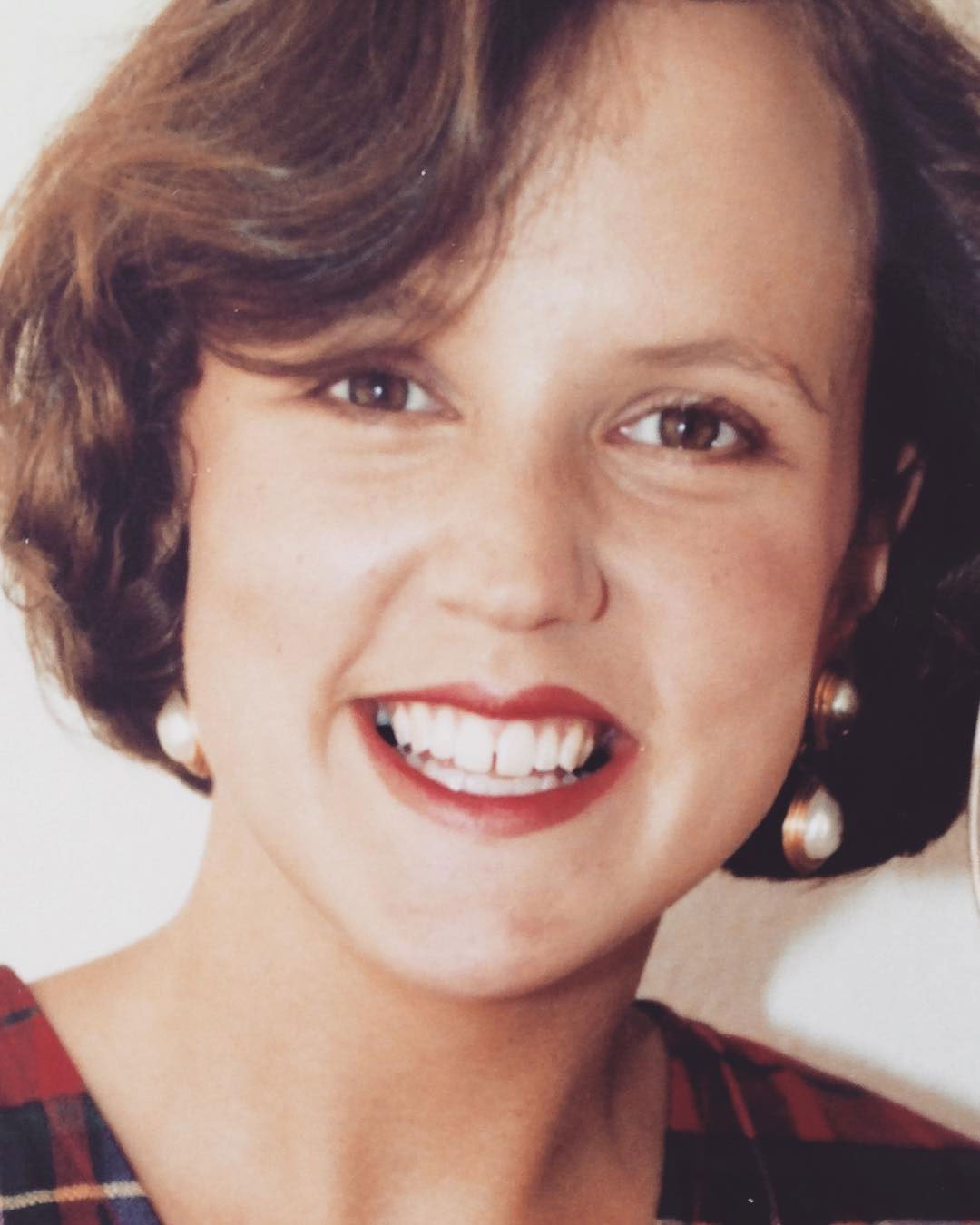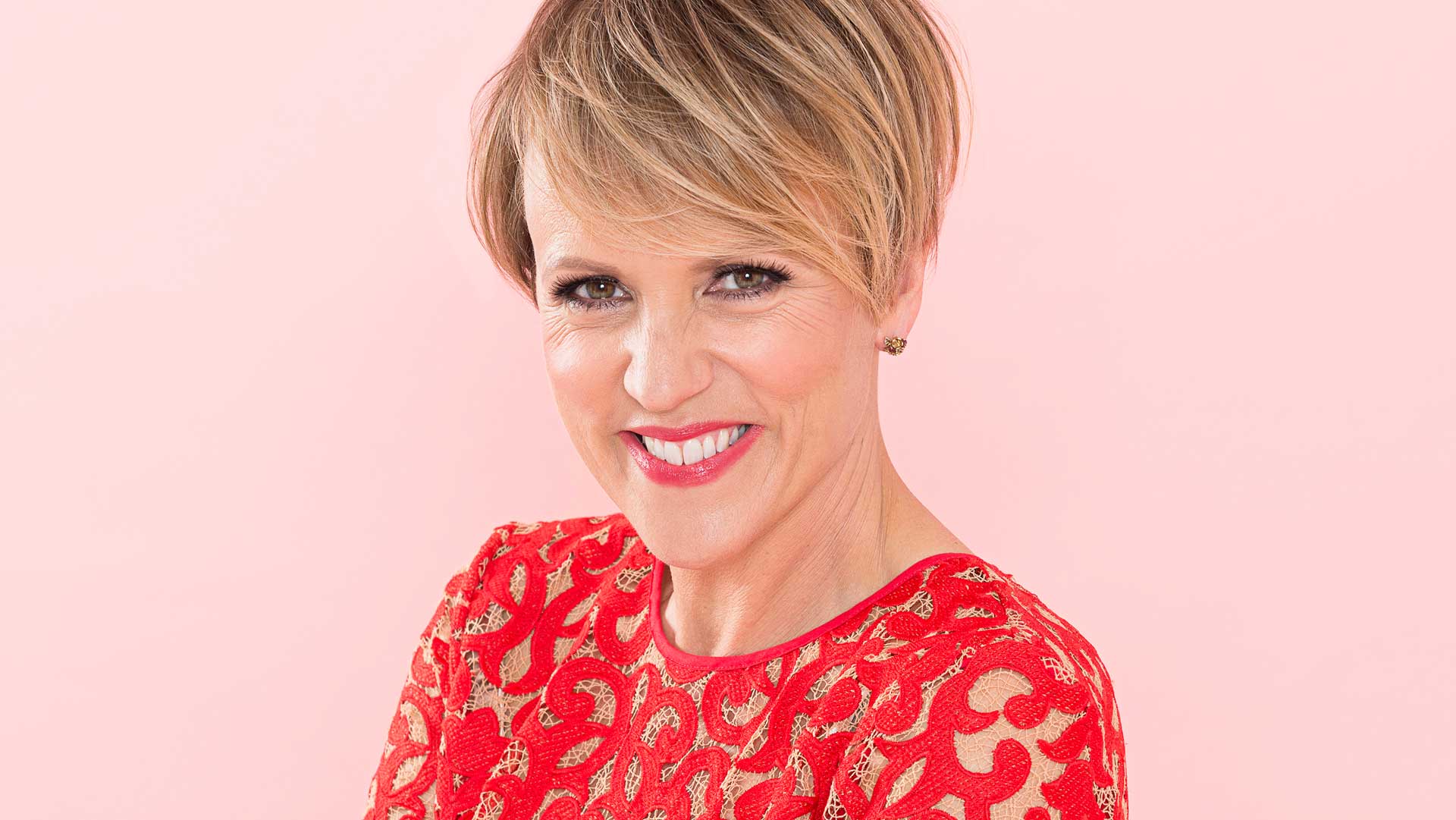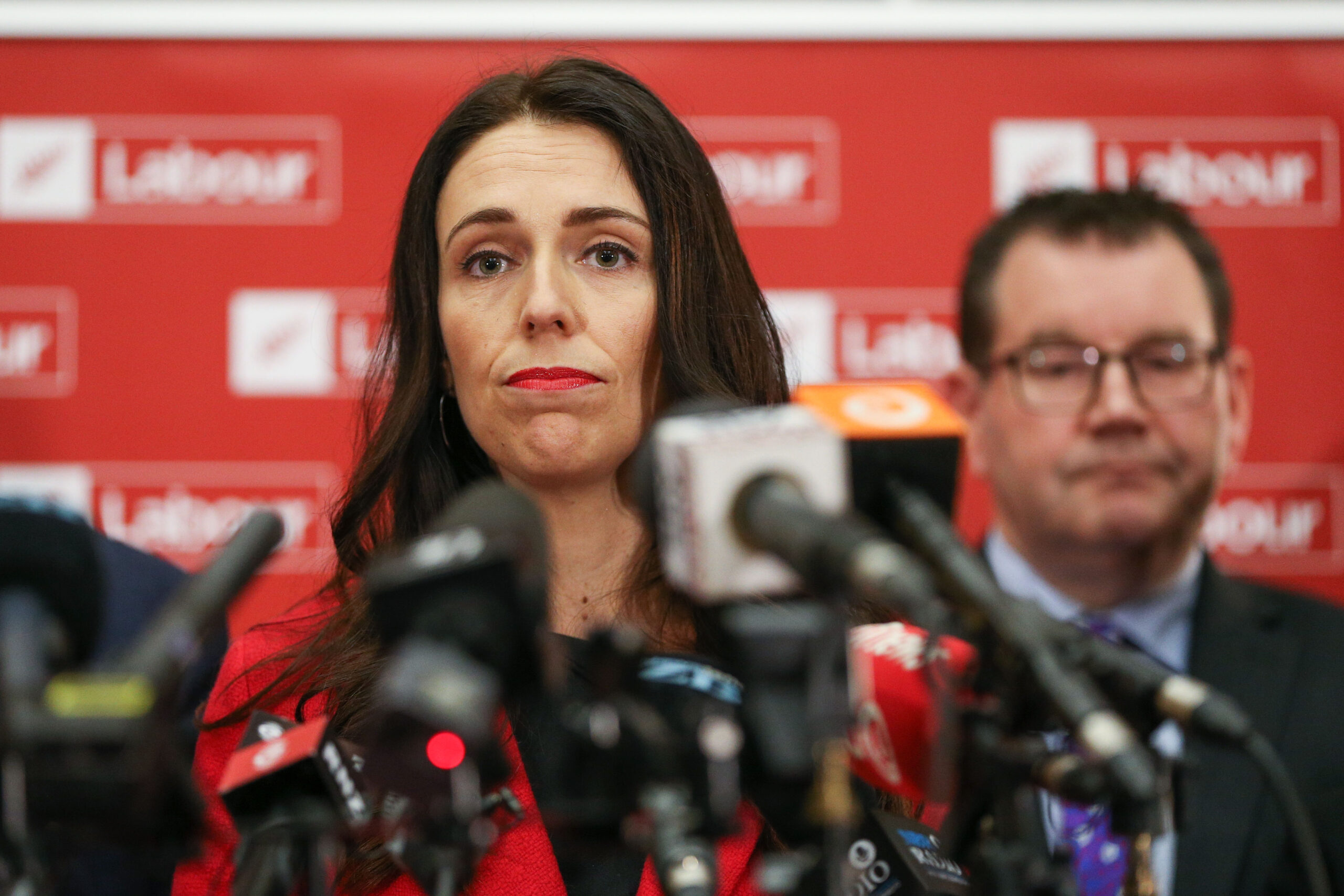There is something that thrills Hilary Barry about an election day. Since turning 18, she has always loved the ritual of walking down to a local hall on a Saturday morning to carefully cast her vote. Then she savours the buzz as votes are tallied through the night.
As it turns out, this curious passion of hers might very well be hereditary. Hilary, née Pankhurst, proudly reveals that her “great-great-great aunt” was political activist Emmeline Pankhurst – the leader of the British suffragettes, who fought for women to win the right to vote.
“Our family has always been so proud of our connection to Emmeline, and she’s always been a really inspiring historical figure in my own life,” says Hilary.
So when Hilary co-hosts TVNZ’s coverage of election night 2017, it will hold special significance for the much-loved journalist and Breakfast television presenter.
There’s no doubt that a little of Emmeline Pankhurst’s spirit and fortitude has rubbed off on her great-great-great niece.
Aunt Emmeline was regarded as a rebel in her time. The founder of the Women’s Social and Political Union, she was imprisoned countless times for using militant tactics – throwing rocks, and inciting vandalism and arson – to agitate for women’s suffrage. Emmeline died just before British women were given full voting rights in 1928.

Hilary Barry’s suffragette great-great-great aunt Emmeline Pankhurst.
Hilary has never been afraid to publicly call out abuse and inappropriate behaviour, especially towards women. On Twitter, where she has 92,000 loyal followers, she leads a crusade to “rid the world of sexist language”, and will often use a put-down hashtag for those she thinks deserve it.
“I remember when I turned 18 being so excited about the fact that I could vote. I was so very proud of my Pankhurst heritage, and also really proud that I live in New Zealand, the first country in the world to give women the vote,” Hilary, now 47, says.
You can understand her fervour for exercising the right to vote on election day. “Whether you choose to vote or not is your decision, but it’s fantastic to be able to have that choice. And wonderful, strong and inspiring women like Emmeline and Kate Sheppard fought for your right to get that vote,” she says.
Although she has been a familiar, genuine voice delivering news to the nation for almost 25 years, it will be the first time that Hilary has hosted the general election coverage.
It’s a responsibility she will share with Seven Sharp host Mike Hosking, and one that she takes very seriously – even though she promises a little of her trademark fun.
This is, after all, the woman who spent the last general election in 2014 working at the party headquarters of Colin Craig’s ill-fated Conservatives at the North Shore Golf Course – and playing mini-golf with candidate Christine Rankin, filling in time between her live crosses.
But this election, she predicts, will conjure up plenty of its own entertainment. The Australian Women’s Weekly sits down to talk with Hilary the week after Jacinda Ardern stepped up to lead a Labour Party that had been wallowing in the polls – a move that violently shook awake the New Zealand voting public.
“It’s going to be an exciting night, isn’t it?” Hilary enthuses. “The build-up to the election was slowly pottering along, and then it got a little more exciting, didn’t it It’s going to be absolutely fascinating to see what happens.”

“The great thing about having a new young leader of an opposition party is that it will energise a younger group of people. Historically, so many young people just haven’t voted, and to have more of them engaged in the political process and then voting would be fantastic.”
Hilary holds huge respect for women politicians, who she has dealt with throughout her career. “Across the political spectrum, there are good, strong women doing great work. But I think we need more,” she says.
“I don’t think by any means it is an easy job; for a long time it’s been a bit of a boys’ network. But the more women in our Parliament the better, because it better represents who we are as a people, with a pretty even split of men and women.”
Hilary admits that she “cringed” when two male television hosts fired the now infamous question, “Do you plan to have children?” at Jacinda Ardern within 24 hours of her assuming the Labour leadership.
“It just annoyed me that it was one of the first questions she was asked as the leader of a political party: whether she would feel a conflict over having children, or having a career. It is just not an appropriate question… and it’s a question that no man would ever be asked,” Hilary says.
“It has nothing to do with her ability to do that job. I remember hearing Theresa Gattung reveal that the day she became CEO of Telecom [in 1999], it was also one of the first questions asked at her press conference. It’s absolutely ridiculous.
“People work and people have families, whether they are men or women. This is the world in which we now live.
“I think it’s ignorance on the part of the people asking the questions. Jacinda handled herself really well, and she was quite open about being happy to answer them. But other women aren’t happy to answer those questions, and I would be one of them.”
It takes Hilary back to when she began reading the 6pm news on TV3 12 years ago, and a male radio DJ in Dunedin who was interviewing her about her new role asked: “So who’s going to look after your kids?”

“I was so taken aback. Here you are, live on air, and you don’t want to create a scene. It’s supposed to be a warm fuzzy interview, so you just brush it off and carry on. But it annoyed the hell out of me! I knew no one was going to ever ask [co-host] Mike McRoberts that question.” And yet both newsreaders had two children of similar ages.
It wasn’t an isolated affront. On the eve of her marriage to high school teacher Mike Barry (they will soon celebrate their 20th wedding anniversary), Hilary’s boss at the time sat her down and asked if she was going to change her surname.
“When I said, yes, I was, he replied: ‘Look, I really don’t think you should because we have a lot invested in the Hilary Pankhurst brand.’ I just shrugged my shoulders and said: ‘Oh well, I’m sure they’ll get used to it.’ And they did,” she says.
“The choice was mine to make. Just as you can choose to have children, or not; or choose to work or not. Having that choice is the glorious thing about living in this fabulous country.”
Hilary was never asked by her employers, or other media, whether she was considering having children. “It was never an issue – I just got on with it,” she smiles. Finn is now 17, and Ned 15.
“I think everyone with children has the same priorities. What comes first? Family, always. What comes second? Work. It’s always been my experience that they co-exist, but my family will always come first,” she says.
“People often remind me that they would hear one of my babies cooing away in my arms while I was reading the morning news on More FM. I didn’t take them in every morning, obviously, but there would be the odd occasion when the arrangements I’d made for them had fallen through. Workplaces just roll with it. You muddle through.”

Hilary with her co-anchor and friend Mike McRoberts.
The Barry family has always been a tight-knit bunch. But now that Hilary works mornings, and has the afternoons and evenings to spend with her boys, she feels even closer.
“I just love having dinner together as a family in the evenings. It is truly the highlight of my day now. The banter is so much fun,” she says.
“Now with Finn leaving home next year, I feel really blessed to have had that time with him before he goes. It’s really lovely.”
Finn is heading out of Auckland to study at university, and Hilary – like most mums – is torn by emotions.
“I will be very sad when it happens, but it’s also great that he wants to go off and do his own thing. I know it’s such a cliché, but they do grow up so quickly. And you hope that you’ve armed them well for the outside world,” she says. “But I do feel bad that I really haven’t given him a lot of cooking lessons.”
Finn need not fear. His mother has a plan to produce her own homemade series of YouTube videos on quick and easy meals: “For students with no cooking training who need to sustain themselves when they leave home.” It’s a working title.
She loves cooking, and she puts out a plate of her very tempting Magic Slice while we chat. “I always thought if things didn’t work out in news, I would have liked to host a cooking show,” she laughs.

A young Hilary (going by her maiden name of Pankhurst instead of Barry) during her first day at 3 National News.
In preparation, she was recently a “contestant” on a celebrity version of My Kitchen Rules – featuring her Breakfast show crew, and filmed in the kitchen of her Milford home with regular MKR judges Pete Evans and Manu Feildel.
Although Hilary won’t be drawn on who won the three-course cook-off, which is likely to screen in the next few weeks, she is still raving about the paua ravioli created by Breakfast‘s sports presenter Brodie Kane.
Hilary admits that living with teenage boys has primed her for working with a younger generation at Breakfast. And that she is loving the “completely different experience” of the morning news and talk show.
“When you’ve been doing the same thing for a long time, you fall into a work pattern that over time becomes repetitive. The nature of news is always changing, so that keeps it enjoyable. But it’s great doing new stuff. It’s been such a long time since I sat down and actually interviewed people,” she says.
“To be on television live for three hours of every day is quite energy-sapping, but it’s great fun. There is so much more space to be spontaneous than there ever was in a news bulletin.” And we all know her tendency towards a good giggle and the odd snort on air.
You have to be excused for a bit of hilarity when you get up at 3am every weekday. Even Hilary, a self-confessed early bird, admits she has never started her days this early before – even through her years of working on morning radio, followed by a stint on The Paul Henry Show.

Hilary with fellow broadcaster Paul Henry
“It’s the middle of the night really, and it takes a bit of getting used to,” Hilary says.
“But once you are in that routine, it’s amazing how quickly your body adapts to it. On weekends I wake at 4am – that’s a sleep-in for me – and then try to doze off again, but it’s a hard habit to break.”
Even the Prime Minister, Bill English, was staggered by the hour of the day that Hilary rises. “By the time he came in to our studio at 7am, I was high on caffeine and pretty chirpy, and he made a comment about the fact that I seemed to be pretty wide awake. When I told him I get up at three, he said, ‘No wonder!'”
Most days she has an afternoon siesta for an hour, and returns to bed at 8pm. “I still get eight hours of sleep a day; I just consume it differently to other people,” she says.
When the Breakfast team arrives at TVNZ during the witching hour, it takes an almost-silent routine to rouse them from their drowsiness.
“We all say ‘Gidday’ in muted tones, then spend the first half hour just waking up. I put on a strong pot of coffee for us all, drink a cup of tea while I wait, and then have something to eat. Then we’re ready for the ‘chirpy zone’,” Hilary says.
She calls her right-hand man, Jack Tame, the “Energizer Bunny… He’s got so many things on the go while we’re on air – he’s online, he’s checking his phone – he’s phenomenal. He’s also talented, sharp and a lovely person to boot. I really enjoy working with him,” she says.
Newsreader Daniel Faitaua is “hilarious, but so laid back… and then he occasionally comes out with some savage remarks”. And weather presenter Matty McLean, she says, is like everyone’s sweet little brother.
Hilary has found a soul sister in Brodie Kane, Breakfast’s vibrant sports presenter, who is 17 years her junior. “I love her. She is so different from anyone else on television – so authentic, so real, so enthusiastic. I love the way she interviews people too; big-time rugby players trust her and open up to her in a way they wouldn’t with anyone else,” says Hilary.

“I definitely see a bit of me in Brodie – the ability to let yourself go and be yourself on air. That takes courage – it can either polarise people, or they really get you, and engage with you. You have to be brave to be yourself on telly.”
Hilary took a brave stand when she walked away from a glittering 23-year career at TV3 two years ago, worn down by the internal politics and the breaking down of staff morale. While she misses former colleagues, like Mike McRoberts, she no longer misses the 6pm news shift.
“I loved doing it. But I had done it for long enough; it was time to move on. I’d run my course,” she says.
She’s quick to slap down recent rumours that she will be returning to the 6pm timeslot, but this time on TVNZ.

“Simon Dallow reads the news with Wendy Petrie – you don’t break up a duo like that. It would be like having Morecambe and Wise without Morecambe, or just one Ronnie. They do a great job. You don’t change what’s working for you. It’s a totally ridiculous rumour,” Hilary says.
She wouldn’t give up her precious evenings with the three Barry men, anyway. “You hear horror stories about the teenage years, but I’ve just loved them. Maybe we’ve been lucky to have good, happy children. It has genuinely been so much fun watching them grow into teenagers and adulthood,” she says.
And she’s happy to be celebrating 20 years of marriage to Mike in February. “I found a good one there. He’s an absolute gem. We have a laugh, and that’s always been the secret to our relationship,” she says.
As for their anniversary celebrations? “Well, I don’t think it will involve a renewal of our vows. We might go out for a slap-up dinner. It’s midweek, so it will have to be a 4.30pm beer and out for dinner at 5.30. How tragic is that?” Such are the trials and tribulations of a Breakfast show host.
Hilary’s great-great-great-aunt Emmeline Pankhurst

Emmeline being arrested.
Hilary Barry’s great-great-great aunt Emmeline Pankhurst was a British political activist who helped women win the right to vote.
In 1999 Time named Pankhurst as one of the 100 Most Important People of the 20th century, stating “she shaped an idea of women for our time; she shook society into a new pattern from which there could be no going back”.

Crowds gather to celebrate Emmeline and her daughter Christabel’s release from jail.
Emmeline’s militant tactics – she was arrested seven times and once imprisoned for six weeks for inciting a crowd to “rush” the House of Commons – were widely criticised, but her work is recognised as a crucial element in achieving women’s suffrage in Britain. She died in 1928 at the age of 70.


